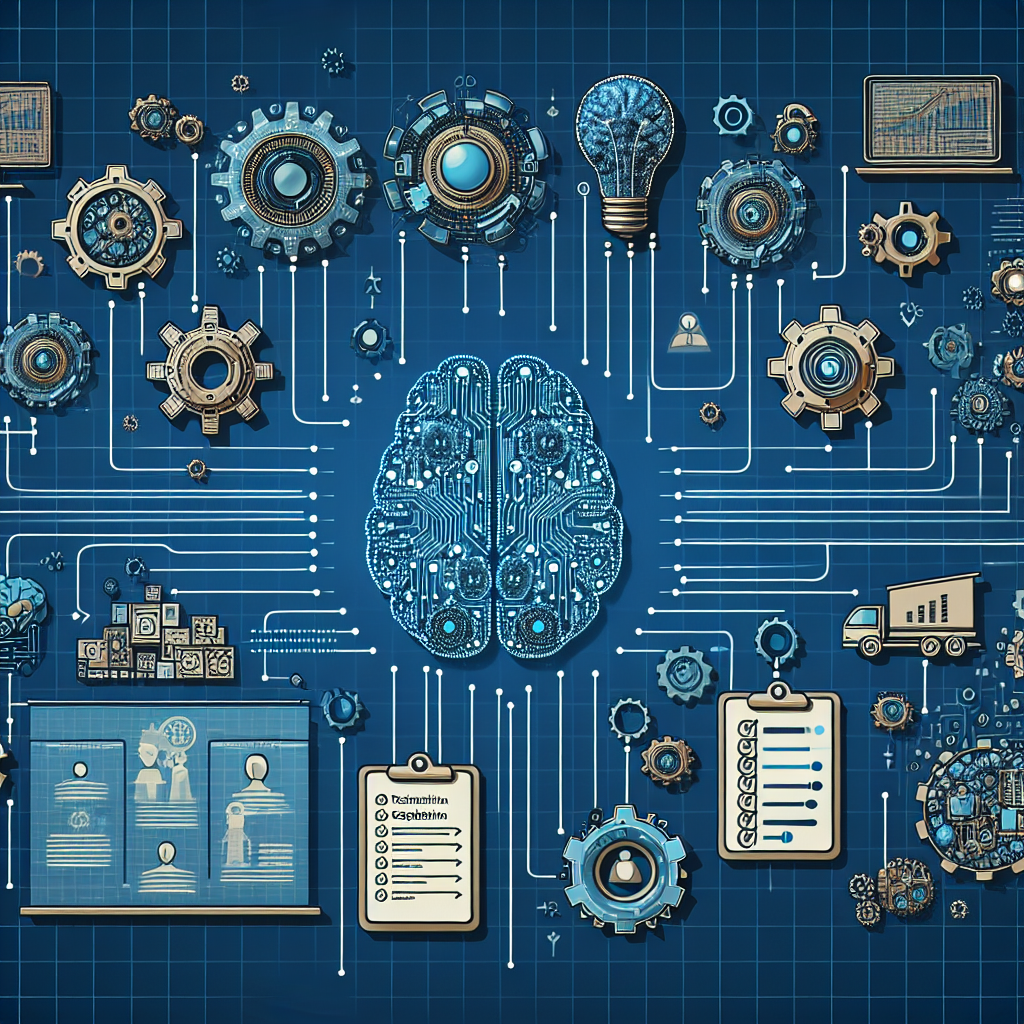Project schedule optimization and resource planning are critical components of successful project management. By implementing artificial intelligence (AI) technologies, organizations can streamline their processes, improve efficiency, and ultimately achieve better results. In this article, we will explore how AI can be used for project schedule optimization and resource planning, along with some frequently asked questions about this topic.
AI for Project Schedule Optimization
One of the key challenges in project management is creating a realistic and achievable schedule that takes into account various constraints, dependencies, and uncertainties. Traditional methods of project scheduling often involve manual effort and can be time-consuming and error-prone. AI technologies can help automate and optimize this process by analyzing historical data, identifying patterns, and making intelligent predictions.
AI algorithms can analyze project data, such as task durations, resource availability, and dependencies, to create an optimized schedule that maximizes efficiency and minimizes delays. By using machine learning techniques, AI systems can continuously learn from past project data and improve their scheduling algorithms over time. This can lead to more accurate and realistic project schedules that are better able to adapt to changing circumstances.
AI for Resource Planning
Resource planning is another critical aspect of project management that can benefit from AI technologies. Organizations often struggle to allocate resources effectively, leading to inefficiencies, overallocation, and bottlenecks. AI can help organizations optimize their resource planning processes by analyzing data, predicting resource demands, and recommending optimal resource allocations.
AI algorithms can analyze historical resource data, project requirements, and resource availability to identify potential bottlenecks and optimize resource allocations. By using predictive analytics, AI systems can forecast future resource demands and recommend the most efficient allocation of resources. This can help organizations make better-informed decisions about resource planning, leading to improved project outcomes and increased efficiency.
Implementing AI for Project Schedule Optimization and Resource Planning
To implement AI for project schedule optimization and resource planning, organizations should follow a structured approach that includes the following steps:
1. Define project objectives and requirements: Before implementing AI technologies, organizations should clearly define their project objectives, requirements, and constraints. This will help determine the scope of the project and identify key metrics for success.
2. Collect and clean data: AI algorithms rely on high-quality data to make accurate predictions and recommendations. Organizations should collect relevant project data, such as task durations, resource availability, and dependencies, and clean the data to remove any errors or inconsistencies.
3. Choose the right AI tools and technologies: There are various AI tools and technologies available for project schedule optimization and resource planning, such as machine learning algorithms, predictive analytics software, and project management platforms with AI capabilities. Organizations should choose the right tools that align with their project objectives and requirements.
4. Train AI algorithms: Once the data is collected and cleaned, organizations should train AI algorithms using historical project data. This will help the algorithms learn from past patterns and make intelligent predictions about project schedules and resource allocations.
5. Monitor and evaluate performance: After implementing AI technologies, organizations should monitor and evaluate the performance of the algorithms. This will help identify any issues or inefficiencies and make necessary adjustments to improve the algorithms over time.
6. Continuously improve and optimize: AI technologies are not static and should be continuously improved and optimized to adapt to changing project requirements and constraints. Organizations should regularly update the algorithms with new data and feedback to ensure they remain accurate and effective.
Frequently Asked Questions
Q: What are the benefits of using AI for project schedule optimization and resource planning?
A: AI technologies can help organizations streamline their project management processes, improve efficiency, and achieve better results. By automating and optimizing project scheduling and resource planning, organizations can reduce delays, increase productivity, and make better-informed decisions about resource allocations.
Q: How accurate are AI algorithms for project schedule optimization and resource planning?
A: The accuracy of AI algorithms for project schedule optimization and resource planning depends on the quality of the data and the sophistication of the algorithms. With high-quality data and well-trained algorithms, AI systems can make accurate predictions and recommendations about project schedules and resource allocations.
Q: What are some common challenges in implementing AI for project schedule optimization and resource planning?
A: Some common challenges in implementing AI for project schedule optimization and resource planning include collecting and cleaning data, choosing the right AI tools and technologies, training the algorithms, monitoring and evaluating performance, and continuously improving and optimizing the algorithms.
Q: How can organizations measure the success of AI implementations for project schedule optimization and resource planning?
A: Organizations can measure the success of AI implementations for project schedule optimization and resource planning by tracking key performance indicators, such as project completion time, resource utilization, and cost savings. By comparing these metrics before and after implementing AI technologies, organizations can evaluate the impact of AI on their project management processes.
In conclusion, AI technologies can play a crucial role in project schedule optimization and resource planning by automating and optimizing critical processes. By following a structured approach and leveraging the right AI tools and technologies, organizations can improve their project management practices and achieve better results. By continuously improving and optimizing AI algorithms, organizations can stay ahead of the curve and drive success in their projects.

